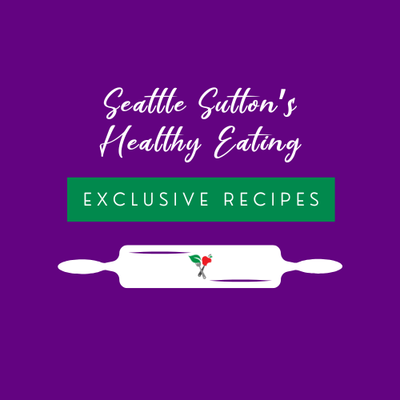Is Sugar Bad for You?
A lot of people are wondering now “Is sugar bad for you?” We have moved from fat being the item we all obsess over on the food label to now focusing on sugar. The answer isn’t an all-encompassing “yes” as it depends on the type of sugar you are consuming. There are two types of sugar - added sugar and natural sugar. Added sugar includes the familiar white granulated “table sugar” as well as concentrated sources like fruit juice. There are also naturally occurring sugars found in fruit, vegetables, dairy, and unrefined carbohydrates. Many people wonder, “Is natural sugar bad for you?” and “Is there healthy sugar?” Read on to find out.
The sugar you’ll get from a candy bar or a slice of cake is essentially the same sugar naturally found in whole foods. Your body breaks down all forms of sugar into its simplest form - glucose. Glucose is what your body loves to use for quick energy, but sugar added to sweets and beverages has a different impact on your health than the same sugar supplied by a piece of fruit.
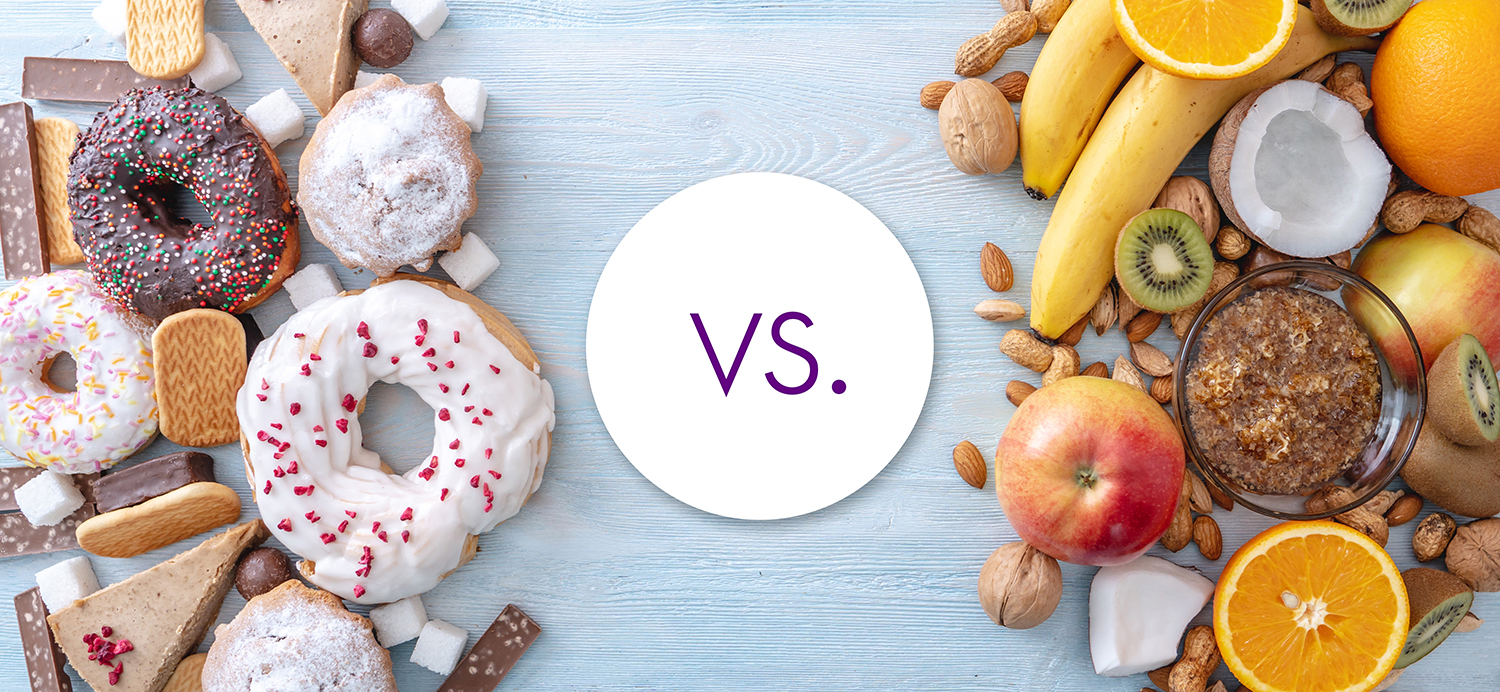
Is NATURAL SUGAR bad for you?
Foods such as:
- Fruits
- Vegetables
- Beans
- Dairy Products
- Whole grains
...are all examples of good, natural sugars. These naturally occurring sugars are valid energy sources, and along with the other nutrients in these foods, are important for nourishing a healthy body. While there’s no such thing as a fully ‘healthy’ sugar, foods such as fruits and dairy items, are healthier forms of sugar that will provide essential nutrients to our bodies.
When simple sugars are naturally found in whole foods, they come with vitamins, minerals, protein, phytochemicals, and fiber. The presence of fiber makes a significant difference because it slows down the absorption of sugar, which slows its impact on blood sugar. We often feel more full on foods with natural sugars since the fiber and other nutrients in those foods are digested much slower, leading to feeling fuller with fewer calories. The natural sugar in whole food is so-called “good sugar.”

IS PROCESSED SUGAR bad for you?
When any type of sugar is added to foods during processing, cooking, or at the table, this is considered added sugars. With these sugars, you consume calories without any nutrients or fiber. This type of sugar is considered “bad sugar.” In its most processed and refined form (think the white powdery stuff we stir into coffee or high fructose corn syrup in soft drinks and packaged foods). Added sugars have absolutely no nutritional value and provide empty calories which can lead to weight gain. Void of vitamins, minerals, protein, fat, and enzymes, it’s a source of energy but not nutrition. Simple sugars gain quick access and cause a spike in blood sugar.
Examples of where you might find added sugars include:
- Sugar-sweetened beverages, such as sodas, coffee drinks, sweetened tea, vitamin waters, and sports drinks
- Breakfast cereals, cereal bars, and oatmeal
- Sweets, candy, and pastries
- Dairy desserts such as pudding and ice cream
- Syrups, jams, and jellies
- Ingredients on the label which indicates added sugar include:
- Agave nectar
- Brown Sugar
- Cane Sugar
- Corn syrup
- Dextrose
- Evaporated cane juice
- Fructose
- Fruit juice concentrate
- Glucose
- High-Fructose corn syrup
- Honey
- Invert Sugar
- Maltose
- Malt Syrup
- Maple Syrup
- Molasses
- Raw Sugar
- Sucrose
- Syrup
How Sugar Affects Your Health
“Intake of added sugars, particularly from beverages, has been associated with weight gain, and higher risk of type 2 diabetes and cardiovascular disease” according to Harvard Health. Higher consumption of added sugars can also raise triglyceride levels.
The average American consumes 22 teaspoons of added sugar a day, which equals an extra 350 calories. The American Heart Association has recommended that Americans drastically cut back on added sugar to help slow the obesity and heart disease epidemics. Seattle Sutton’s Healthy Eating helps its customers follow a low-sugar diet .
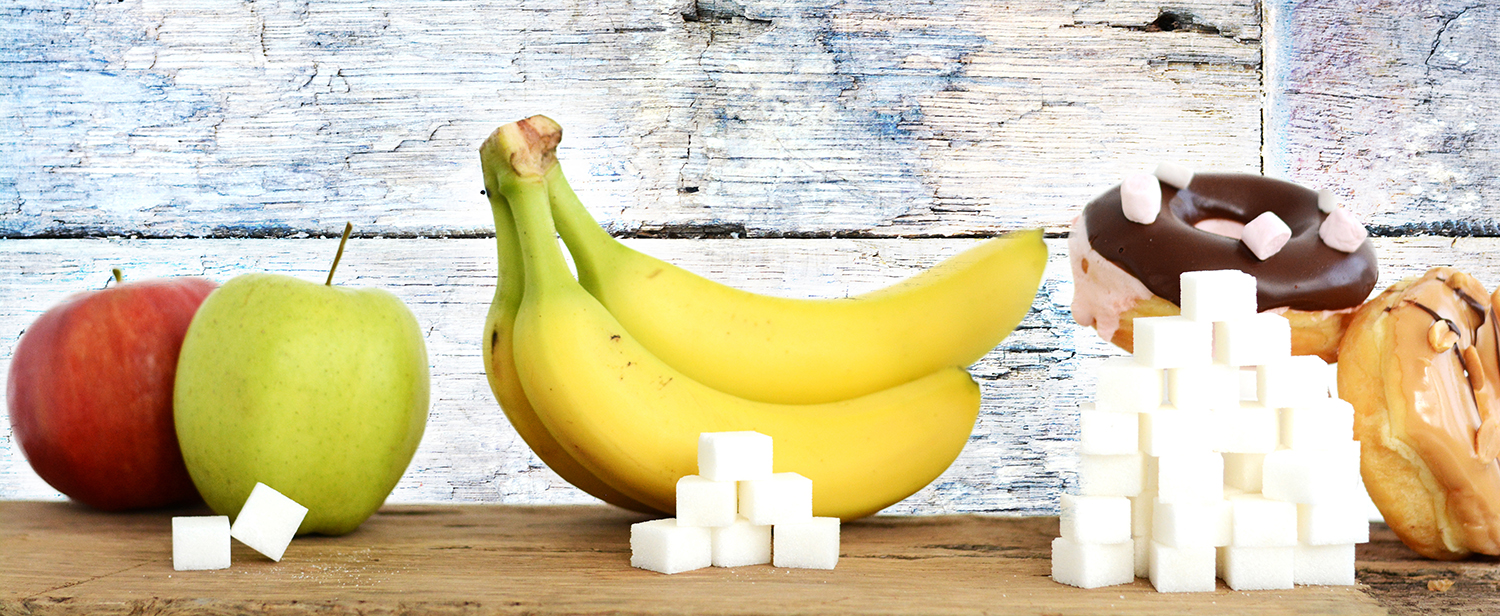
The American Heart Association recommends consuming no more than 100 calories a day of added sugars for most women and 150 calories a day for most men. Our added sugars across our plans average 55-86 calories per day, well below their recommendations. The Dietary Guidelines recommend less than 10% of calories come from added sugars, our plans average 4-4.5% of calories. The WHO ( World Health Organization) also recommends limiting added sugar to no more than 10% of calories.
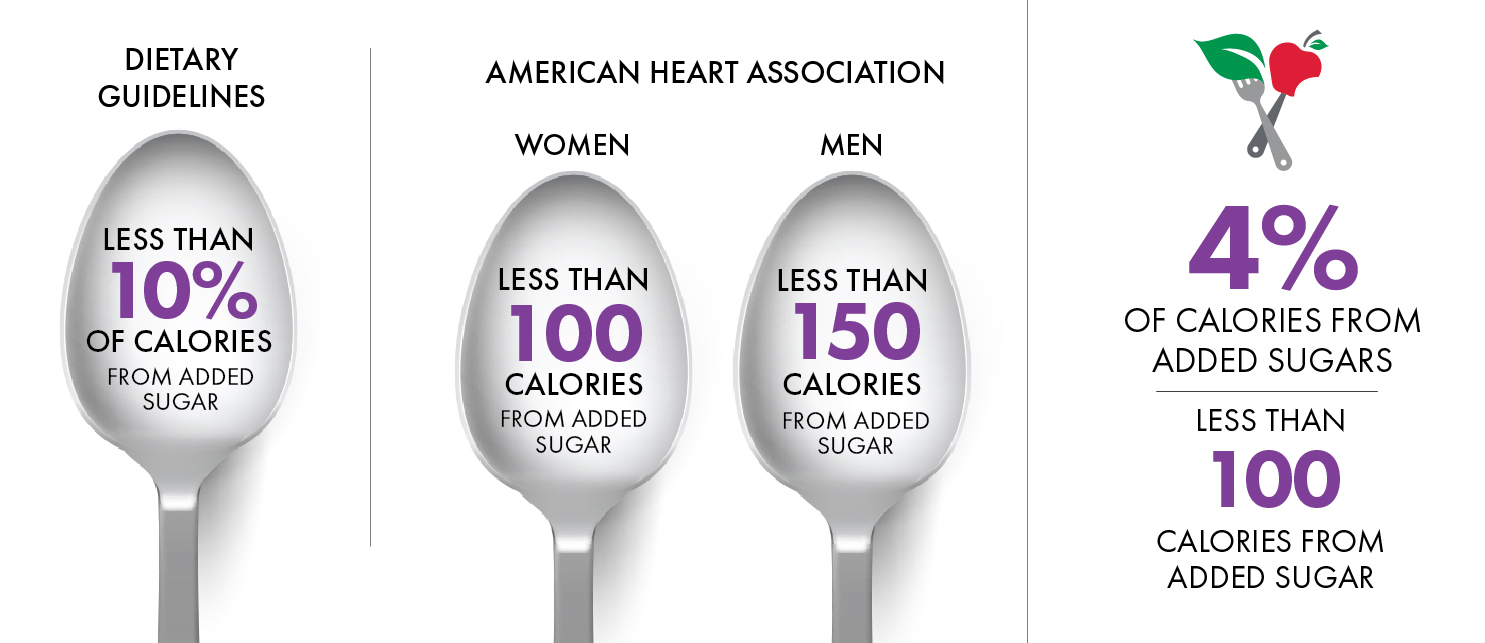
What we know for sure is that excess added sugar in the diet is harmful to the body over time. Too much sugar speeds up the aging process, damages teeth and gums, and puts pressure on the liver the same way alcohol does! Excessive sugar consumption has also been linked to an increased risk of type 2 diabetes, heart disease, and even some cancers.
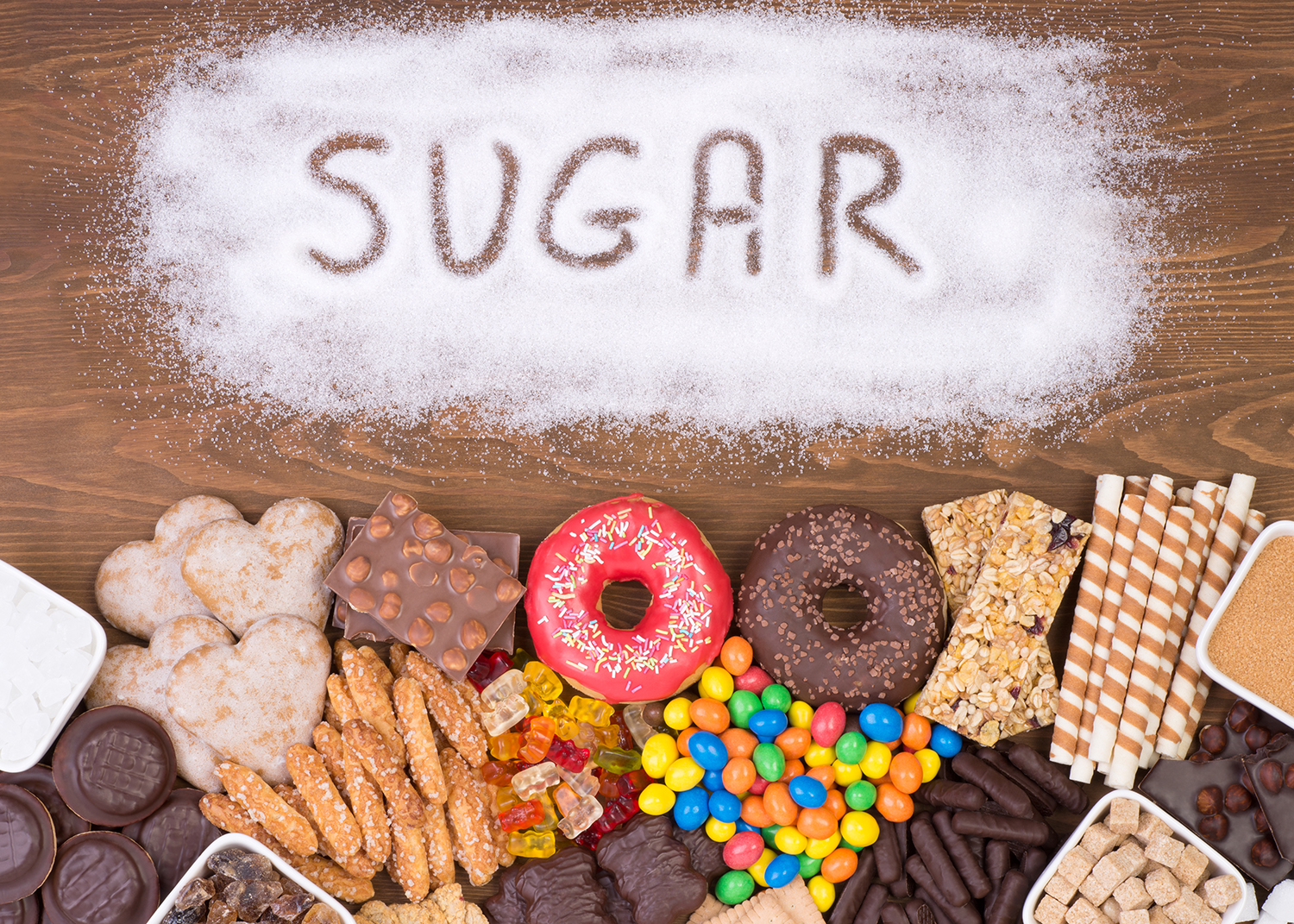
How Healthy Sugar Contributes to a Healthy Body
The truth is that anything in excess is bad for you. Do you know the saying, too much of a good thing? Yes, even water in copious amounts is bad for you! What matters is your overall diet, which requires a balance of proteins, carbs, and fats. You should certainly avoid loading up on Twinkies and soda pop, but eliminating all types of sugar from your diet completely is totally unnecessary.
Sugar found in whole foods, such as fruit provides essential nutrients our bodies need for proper nutrition. So, the next time you pass up that papaya or mango because you are trying to “cut back on sugar,” think again – there’s plenty of vitamin C, vitamin A, fiber to name a few, and even trace amounts of protein and iron!
According to Harvard Health, “For most people consuming natural sugars in foods such as fruit is not linked to negative health effects, since the amount of sugar tends to be modest and is “packaged” with fiber and other healthful nutrients. On the other hand, our bodies do not need, or benefit from, eating added sugar.”
We recommend having smaller portions of foods with added sugars, decreasing how often you eat foods with added sugars, and choosing options that have a lower amount of added sugars. It’s a good idea to replace added sugars with natural sugars too, for example, you could swap your afternoon cookies with apple slices. You can read more suggestions on our blog, “Cut Added Sugars? Seattle Sutton’s ALWAYS has!”
Looking for a great menu that helps you lose weight and feel great at the same time? Look no further than Seattle Sutton! With 36 years of proven results, Seattle Sutton's Healthy Eating prepares tens of thousands of healthy, delicious meals weekly and its innovative approach has helped thousands of people achieve and maintain weight loss without planning, shopping or cooking for themselves. Seattle Sutton’s mission is to improve your health through nutritious meals, by limiting ‘bad sugar’ intake.
Interested in eating healthy? Hungry for more?





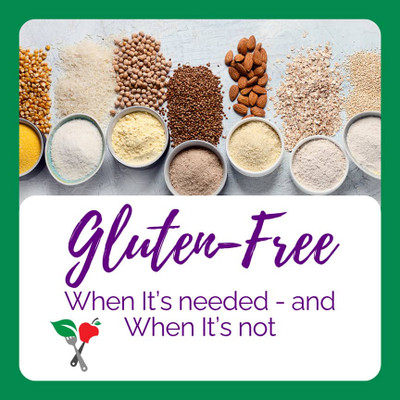

 Weight Loss
Weight Loss Health & Wellness
Health & Wellness Diabetes
Diabetes Heart Health
Heart Health Motherhood & Family
Motherhood & Family Dietary Restriction
Dietary Restriction Other Health Conditions
Other Health Conditions About SSHE
About SSHE
